Depending on the season and where you live, your local weather and temperature might just be all over the place. When you swim outside for exercise, it’s hard to know the best air temperature for swimming.
You may think that it’s too cold out or even too hot outside for swimming. If you are like me, you want to get out and exercise in the water, but you want it to be the ideal temperature conditions for the best workout and to avoid getting sick or suffering any potential safety issues due to the air temperature being wrong.
Swimming is a great workout for just about anyone. Whether you are dealing with wanting to get back into shape, wanting to lose body fat, or you just want to be more active, swimming is a great option!
For the best swimming results and safety, it’s important to know the best air temperature for swimming, so we are going to talk about it here. Let’s get into it, shall we?
Best Air Temperature for Swimming
The best air temperature for swimming is partially a matter of preference, but not always. Sometimes the best air temperature for swimming is dependent on your activities and goals.
For this reason, we’ll show you which is the right temp for you to use your pool safely. Of course, swimming temperatures can always be a matter of personal preference. However, we’ll show you which is the standard water’s condition when it comes to swimming.

14 Day Bootcamp Challenge to a Healthy Lifestyle
This quickstart challenge is for the women who want to know the right foods to eat, but without a set meal plan to follow. Quickly learn how to put together your own healthy meals and snacks, along with so many other important healthy principles to create a balanced healthy lifestyle. And…all in 14 days!
Through daily emails, I will share some habits and principles you can start tomorrow morning that when used consistently, you WILL lose weight. You’ll get assignments along the way to implement immediately along with help from me via email if you have any questions. This is a great way to jump right in to start transforming your life! Read more details below…
What is the Difference Between Water Temperature and the Air Temperature?
It’s very rare that you find a day where the temperature in the water and in the air are the same. I’m sure you have noticed that getting out of the pool can cause you to have a bit of a chill and this is because of the different temperatures in the air and the water. For the absolute perfect swimming conditions you need to focus on both water and air temperature.
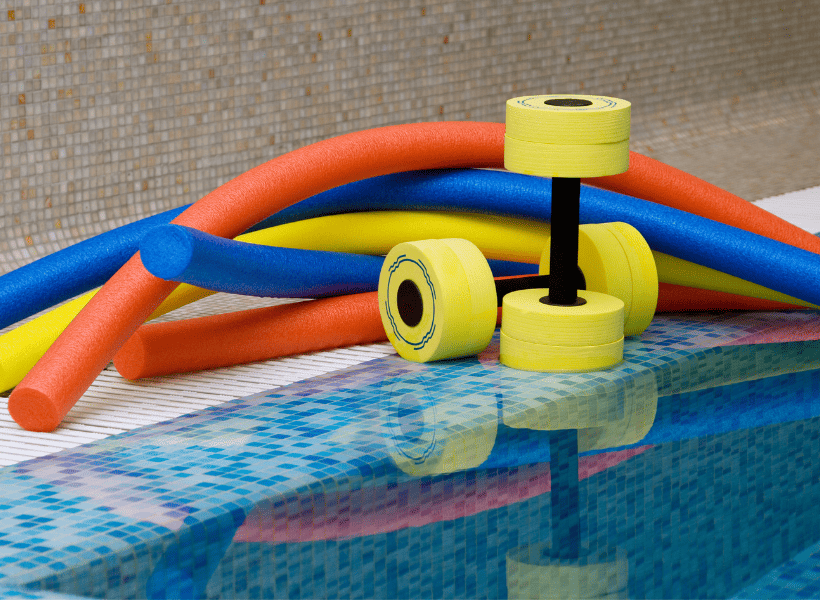
Is Air Temperature Important in Both Indoor and Outdoor Pools?
For the best swimming conditions, air temperature is important regardless of if you are using an indoor or an outdoor pool. Of course, it’s much easier to control the temperature in an indoor pool, but of course, we don’t all have access to that option.
The Best Air Temperature for Specific Swimming Workouts
As we mentioned before, the ideal air temperature is dependent upon what activity you are doing in the pool. For example, if you are in the pool for a water therapy session, your air temperature should be at least 84 degrees fahrenheit.
For a more comfortable air temperature, you should try and shoot for around 82 degrees. If your workouts are centered around competitive swimming, you will want the air temperature to be on the cooler side, around 78 degrees.
It is important to not swim when the air temperature is too extreme one way or another. While cooler water feels great when it’s hot outside, you don’t want to spend too much time in the hot temperature.
Warm water feels great when the outside air is cold, but breathing in that cold air isn’t ideal for too long for fear of developing a cold, or even causing you to become light headed.
The Best Water Temperature Matters Too
The best water temperature is just as important as their air temperature. No matter what activity you are doing, you are going to want to have a comfortable water temperature, however, there are benefits to having your water at a specific temperature.
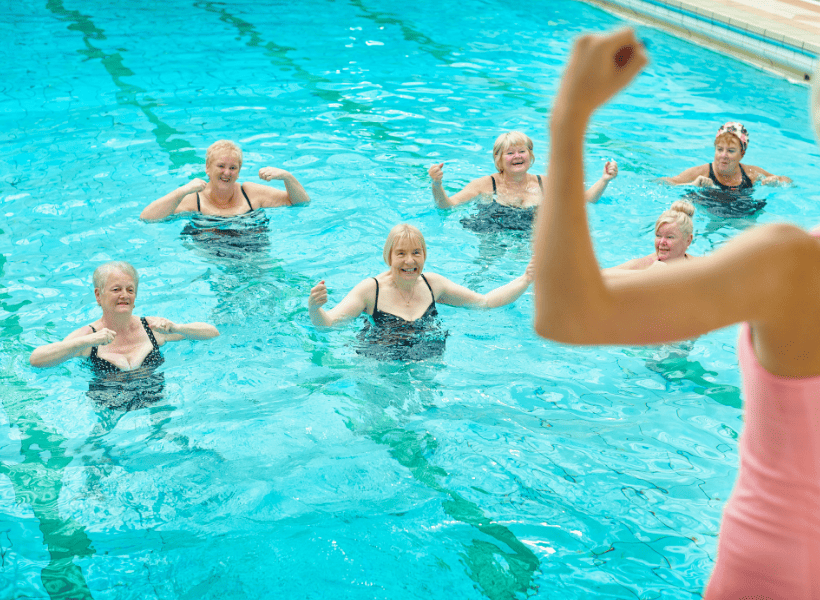
A heated pool really is a must-have for exercise purposes because the temperature of the water matters in your workout.
Again, if you are doing a workout geared toward competitive swimming, you will want cooler temperatures in your pool (roughly 82 degrees).
If you are working toward physical therapy in an aquatic setting, you will want higher temperatures (90-92 degrees).
For any other workout or activity, you should aim for a comfortable water temperature (between 78-82 degrees).
Why are Different Temperatures Important for Different Activities?
There are good reasons for making sure to keep both the air temperature and water temperatures at specific levels for different activities. The perfect pool temperature is dependent upon what you are doing.
Here are some examples as to why this is the case:
- Competitive Swimmers require colder water and air temperatures. The colder temperature prevents the swimmers from having their body temperature get too hot. Overheating during workouts can affect the performance of a competitive swimmer.
- Therapy workouts, water aerobics and recreational swimming require a more comfortable water temperature. This is because warmer temperatures improve blood flow and help with joint pain. This is ideal for older adults or anyone dealing with an injury.

Can You Workout in Open Water?
Open water is a great option for those who aren’t residential pool owners and who don’t have easy access to a pool, however, open water is not great for colder outdoor temperatures.
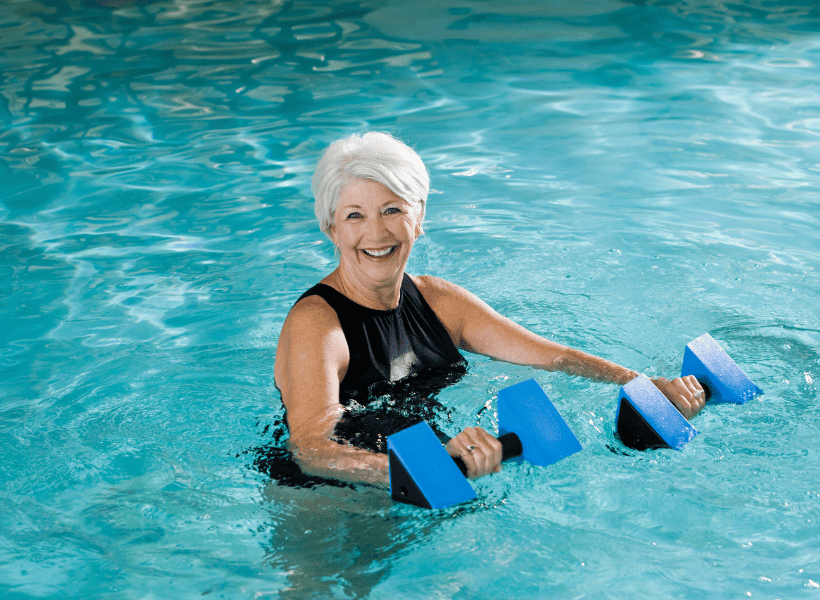
If the open water you are swimming in is cold, you can run into issues such as cold shock response, cardiac arrest (particularly for those who have pre-existing heart problems), or even drowning. It is important to learn cold water safety before deciding to swim in open water.
Other Benefits to Working Out in Comfortable Pool Temperatures
There are other reasons why it is a good idea to exercise in a swimming pool that has a controlled temperature:
- Avoiding muscle cramps
- Avoiding any risk of hypothermia or body heat loss
Now that you have gained this knowledge of the best air temperature for swimming as well as the perfect water temperatures for specific workouts, you are ready to get in the water!
For more swimming safety tips, check out the USA Swimming website. This is the national center for swimming and has many, many resources available.

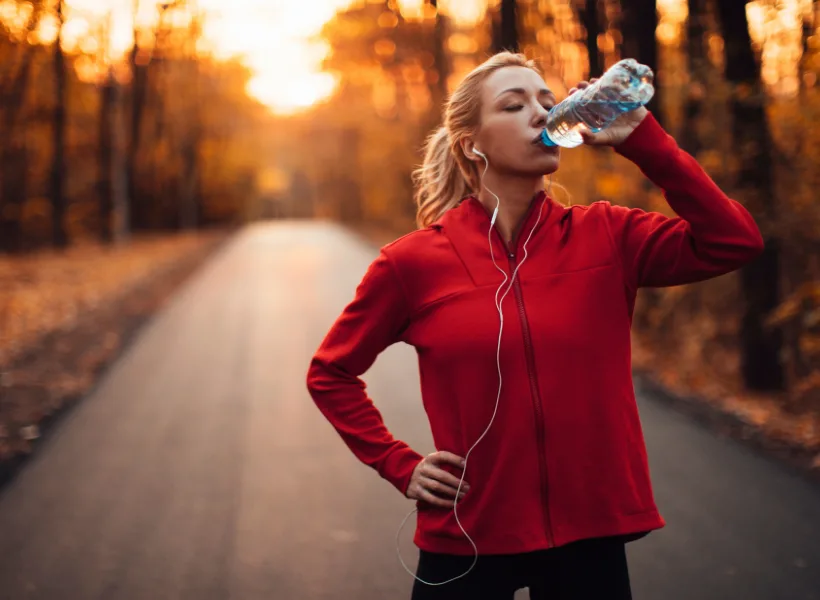
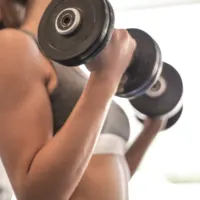
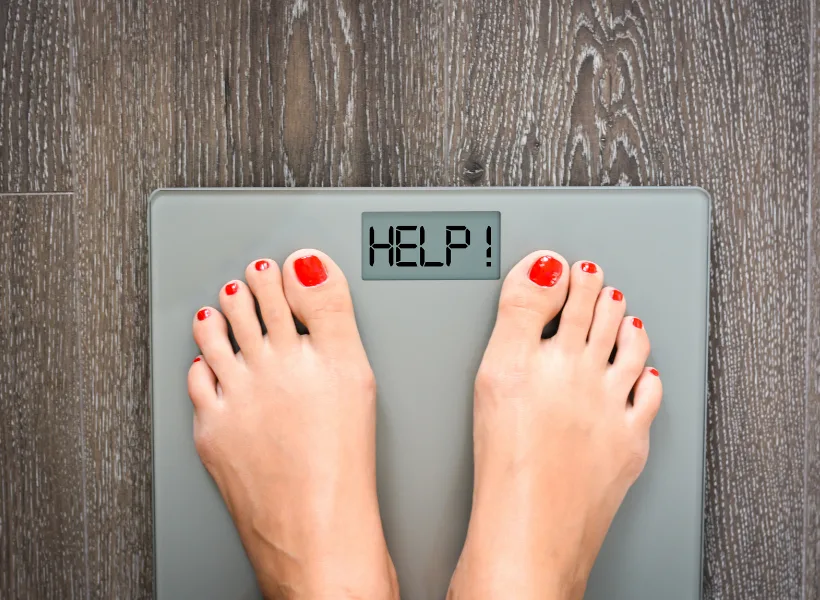
bonus pri prihlásení na binance
Saturday 17th of May 2025
I don't think the title of your article matches the content lol. Just kidding, mainly because I had some doubts after reading the article.